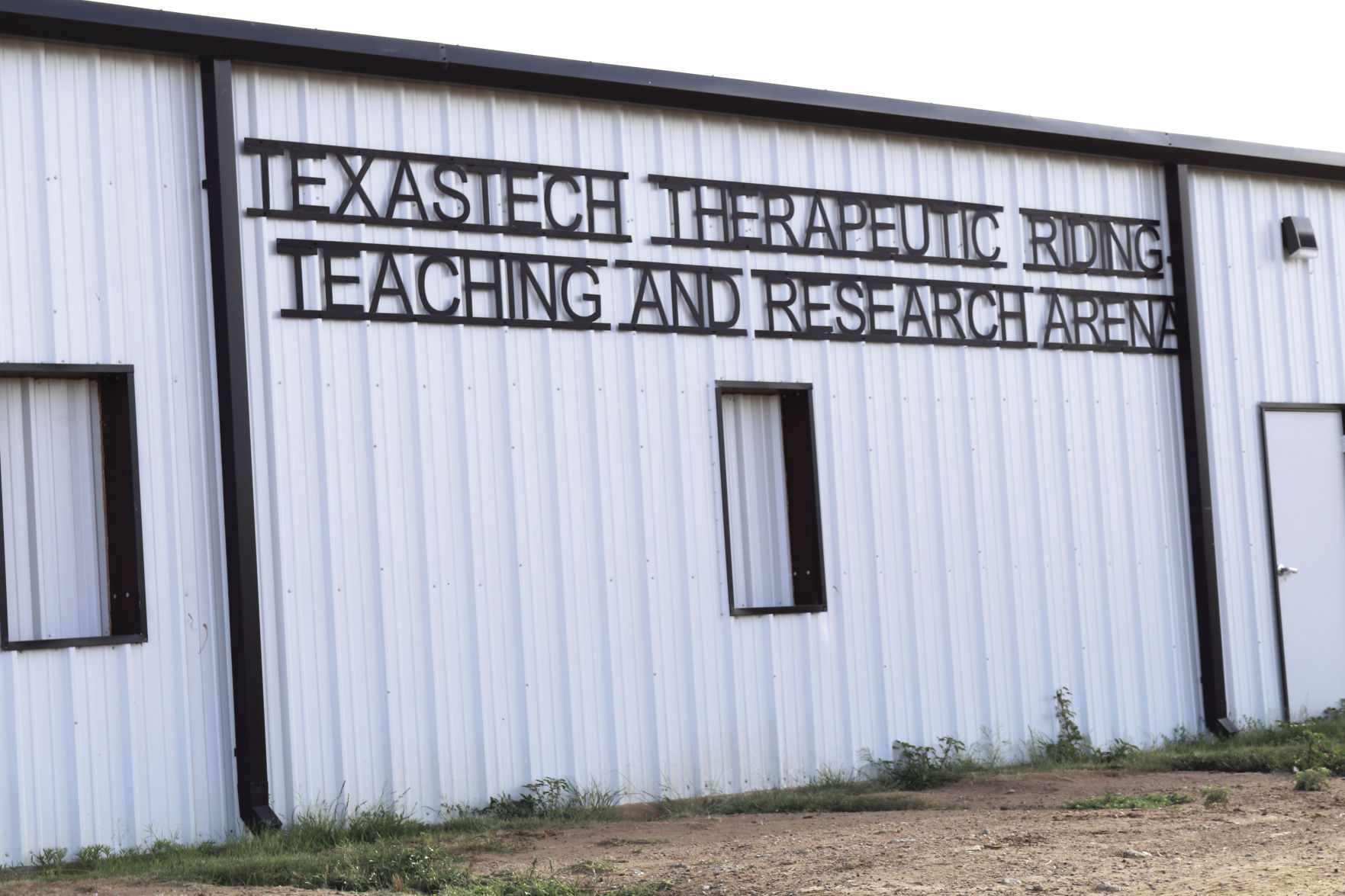Researchers in the Texas Tech University College of Agricultural Sciences and Natural Resources are making positive impacts on the lives of those struggling with mental health issues through its work at the Therapeutic Riding Teaching and Research Arena.
In the arena, Katy Schroeder, an assistant professor in the Department of Animal and Food Sciences, is using equine-assisted mental health programs to help clients of all ages in the Lubbock community overcome a broad spectrum of mental health issues.
Schroeder said she was a horse professional first and wanted to incorporate her horse knowledge into a career in human services. While working at a therapeutic riding center in Oregon, she knew that field was the perfect fit for her career interests, and she went back to school to get her graduate and doctoral degrees in counseling.
Schroeder is the director of the Equine-Assisted Counseling and Wellness Lab at the Therapeutic Riding Teaching and Research Arena. Schroeder’s primary roles in the department are to develop equine-assisted counseling services for the members of the Lubbock community, introduce students to equine-assisted mental health and research how human-equine interactions influence human health and wellbeing.
“The main focus for the lab has been how we can look at human health outcomes,” Schroeder said, “and what’s going on in the relationship with the horse that might be influencing those outcomes.”
Schroeder works with clients who have a variety of mental health concerns, including anxiety, depression, and posttraumatic stress, all of which can lead to feelings of low self-esteem or low self-confidence. The horses can assist with the counseling sessions in different ways, depending on the issues the client wants to address.
For anxiety issues, Schroeder said she likes to start with having the client do breathing and grounding exercises with the horse. Asking the client to place their hands on the horse, then watch the horse’s breath go in and out helps the client focus on the present moment and practice rhythmic breathing, which can be a positive coping skill for reducing anxiety.
When a client experiences low self-confidence, Schroeder said she will teach horsemanship skills to the client. She will have the client do basic activities such as leading, trotting in hand and going through obstacle courses. She said having the client learn to communicate with a large animal they may have never before interacted with builds their self-esteem, as well as problem solving skills, both of which are important for building a positive mood and better self-image.
After each client interacts with the horses, Schroeder and the client process what happened and begin to work their interaction with the horses into the client’s counseling goals. They talk about what went well, what the client’s strengths were and what the client noticed about how he or she communicated with the horse. They then move on to discussing how the clients can integrate the confidence and positive communication used with the horses into their daily lives.
Schroeder said there are two developing research projects taking place in the Equine-Assisted Counseling and Wellness Lab, one concerning childhood obesity and the other concerning the mental health and well-being of veterans.
The study on childhood obesity is a joint effort with researchers from two departments in the College of Arts and Sciences – Jason Van Allen in the Department of Psychological Sciences and Emily Dhurandhar in the Department of Kinesiology and Sports Management.
Van Allen had been researching a family-based obesity intervention, “Positively Fit,”, when Schroeder and Dhurandhar approached him with an idea to integrate horses into the curriculum. They piloted the “Equine-Assisted Positively Fit” curriculum this past spring with families in the Lubbock area and have seen positive results in how horses can improve the health and well-being of young people’s lives.
The study on the mental health and well-being of veterans was initiated by Schroeder’s graduate student, Kandis Cazanave, and participant recruitment started this summer. It is also a joint study with the Department of Kinesiology and Sports Management with researchers Jacalyn McComb and her graduate student, Cruz Hernandez, Dhurandhar, and Tangi Irwin, the program director for the Therapeutic Riding Center. The team of researchers will evaluate the effects of therapeutic riding on veteran’s health, looking for changes in both physiological and mental health outcomes though measurements of changes in stress and strength.
Schroeder said she is excited to see the growth of the Equine-Assisted Counseling and Wellness Lab and is looking for students who are interested in helping out.
“We want to welcome, not just students in our department,” Schroeder said, “but many different disciplines, because this is a unique program where we not only need students with horse backgrounds or equine-science backgrounds, but also students that are interested in mental health components and human development. So we have a unique opportunity here for students across colleges to work together in these programs at the Therapeutic Riding Center.”


